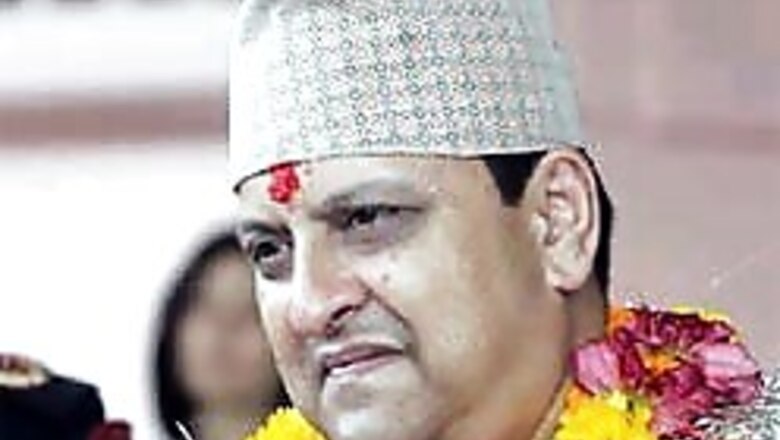
views
Kathmandu: Nepal's former Maoist guerrillas, who fought a 10-year-long civil war to oust the nation's ruling royal dynasty, have now given embattled King Gyanendra a deadline of four weeks to quit the palace, following their stunning victory in this month's crucial election.
Baburam Bhattarai, deputy chief of the former rebels who could become the new prime minister of Nepal, has warned the king that if he failed to leave the Narayanhity royal palace within the deadline, people would force him to do so.
Bhattarai, who comes from Gorkha district in mid-west Nepal, which is also the home of the Shah dynasty of kings, and won the April 10 constituent assembly election from there with the highest number of votes, told BBC Nepali Service on Thursday that if the king exited from the palace on his own, Maoists would guarantee his right to live in the country as a "law-abiding citizen".
Asked how long people would have to wait to see the king walking out of the pink palace, the architect-turned-revolutionary said: "The king would have to return to his own residence from the palace in four weeks since through the constituent assembly election, people gave given us the mandate to turn Nepal into a republic".
After the royal family's exit, the palace would be turned into a museum, Bhattarai said.
With the Maoists inching towards majority in the election and poised to head the new government, there is growing speculation about what the royal family would do if the 239-year-old institution of monarchy, that has been in acute jeopardy since 2005, when the ill-advised king tried to seize absolute power with the help of the army, was finally shown the door.
Prabhakar Rana, a scion of the Rana dynasty of hereditary prime ministers that had ruled Nepal for almost 100 years, and a business associate of the royal family, ruled out rumours that the king would seek to live in neighbouring India, where a large number of ex-royal relatives are present.
"The crown princess (Himani) may send her children to India for their education," he told IANS. "But then, it has been the custom for the royal family to educate their children in India. Even now, two princesses (daughters of late King Birendra's daughter Shruti, who died in the palace massacre in 2001) are at Welham School in India."
Rana said the royal family had made some wise business investments, like in Soaltee Enterprises, that runs the Soaltee Crowne Plaza, one of Nepal's premier hotels, and Surya Nepal, tobacco giant ITC's subsidiary and one of Nepal's blue chip companies.
"I don't think the royal property would be confiscated," he said. "The world is watching what's happening in Nepal; India and China are watching closely."
Meanwhile, there is growing confusion about the legal procedure for abolishing monarchy.
Though last year Nepal's interim parliament declared the Himalayan kingdom a republic, under pressure from the Maoists, it said the decision would have to be endorsed by the constituent assembly.
The April 10 election was held to choose a 601-member constituent assembly. Within 21 days of the results for the contested 575 seats coming out, the prime minister will have to nominate 26 more members and the assembly would have to hold its first meeting, where it would decide the fate of the king who hastened the downfall of his dynasty through his 14-month unpopular rule.
However, Law and Parliamentary Affairs Minister Narendra Bikram Nembang says the current government of Prime Minister Girija Prasad Koirala can't initiate the republican process following its defeat in the election.
"As the people have given a new mandate through the election, only a new government can table the (republic) proposal in the constituent assembly," Nembang told the Himalayan Times daily.















Comments
0 comment